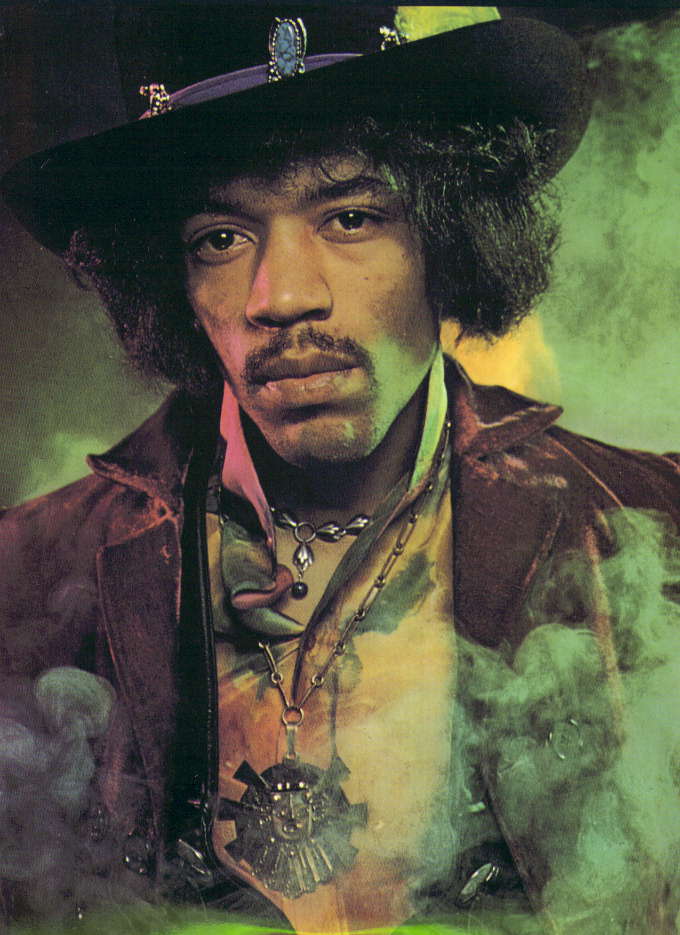 It’s a truism that the lyrics, manners, styles, and rhythms of rock musicians’ offerings tend to express the joys of a rather devil-may-care, hedonistic lifestyle. Now a scientific study has confirmed what our mothers told us: you won’t last long that way.
It’s a truism that the lyrics, manners, styles, and rhythms of rock musicians’ offerings tend to express the joys of a rather devil-may-care, hedonistic lifestyle. Now a scientific study has confirmed what our mothers told us: you won’t last long that way.
Reuters reports that rock stars do indeed die younger than the rest of us, on average:
A study of more than 1,000 mainly British and North American artists, spanning the era from Elvis Presley to rapper Eminem, found they were two to three times more likely to suffer a premature death than the general population.
Between 1956 and 2005 there were 100 deaths among the 1,064 musicians examined by researchers at the Centre for Public Health at Liverpool John Moores University.
Significant culprits in the early deaths were drugs and alcohol abuse, not surprisingly:
More than a quarter of all the deaths were related to drugs or alcohol abuse, said the study in the Journal of Epidemial Community Health.
"The paper clearly describes a population of rock and pop stars who are at a disproportionate risk of alcohol and drug related deaths," said Mark Bellis, lead author of the study.
But I notice that they only account for about one quarter of the deaths. That clearly means that a more general degenerative lifestyle is responsible for the premature deterioration of these people’s bodies.
The number of very early deaths brings the overall average life expectancy down significantly, but the risks remain in place for at least a quarter-century:
[The study] found that musicians were most at risk in the first five years after achieving fame, with death rates more than three times higher than normal.
Hendrix, Bon Scott of AC/DC and punk rocker Sid Vicious all died within five years of hitting the big time, said Bellis.
Among British artists the risk of dying remains high until around 25 years after their first success, when they return to near normal life expectancy.
That’s in Britain. In the United States the risks remain high even after two and a half decades:
But this trend was not found in North America, where ageing rockers remain almost twice as likely to suffer a premature demise, particularly from heart attack or stroke.
 Of course, we do see some very spry elderly rockers wiggling about behind their walkers, artificial hips and knees working like a charm. I recently saw Ringo Starr interviewed on Nightline, and the 68-year-old former Beatle was as full of energy and good humor as ever. And Paul Macco is still producing good music and getting in trouble with the ladies. But John and George are dead, of course, proving the rule. And it’s very telling that the two most ordinary and bourgeois members of the group are the ones that survive.
Of course, we do see some very spry elderly rockers wiggling about behind their walkers, artificial hips and knees working like a charm. I recently saw Ringo Starr interviewed on Nightline, and the 68-year-old former Beatle was as full of energy and good humor as ever. And Paul Macco is still producing good music and getting in trouble with the ladies. But John and George are dead, of course, proving the rule. And it’s very telling that the two most ordinary and bourgeois members of the group are the ones that survive.
The same is true of the Who, with the likeable Roger Daltrey and thoughtful Pete Townshend still alive while party maniacs Keith Moon and John Entwhistle are dead. Brian Jones of the Rolling Stones died in the group’s first years of fame. And in the United States, polo-shirt-wearing Bob Weir of the Grateful Dead is still going strong, while proto-hippie Jerry Garcia has left us.

Of course, there are exceptions to any trend involving human beings—wholesome Buddy Holly was killed in a plane crash, and Keith Richards is still toddling about onstage, for example (and I suspect that Keef lives a lot more ordinarily than journalists and the band’s publicists lead us to believe)—but in the main, the study brings the reality home. The quality and length of your life depend greatly on how you live it. As if there should ever be any doubt of that!
The moral of the story? By all means, go ahead and let yourself "hear some of that rock and roll music, any old time you choose it"—but listen critically, for goodness’ sake.
And listen to your mom! She knows what she’s talking about.

You’re right on the facts, Joe, but there’s more to the story, and I brought the Beatles up for a specific reason. George Harrison was a heavy smoker, like Carl Wilson of the Beach Boys, and died of cancer caused by years of tobacco abuse. John Lennon, of course, showed an intensity and ambition drove him to project himself as much larger and more important than a mere pop musician. In the end, he was murdered by a madman who hated Lennon for his godlessness and blatant hypocrisy (for example, in singing about not needing possessions while he lived a life of luxury). Certainly Lennon in no way deserved to be murdered, but the persona he created and the mentality he offered in his work led his killer directly to him. Hence even these seeming exceptions prove the rule.
S.T., the thing about the deaths of John & George were that John was murdered & George was a victim of cancer. Both men’s lifestyles were relatively healthy otherwise.